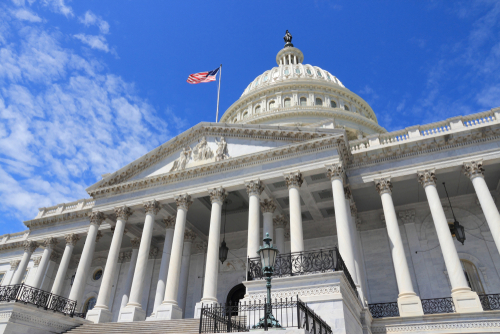
Trump’s MASSIVE Immigration Move – Register NOW!
President Trump’s noncitizen registry executive order ignites fierce debate over its implications and legality.
At a Glance
- A federal judge approved Trump’s noncitizen registry, mandating registration of immigrants.
- The registry requirement enforces longstanding laws but has seen limited past enforcement.
- Noncompliance risks fines or imprisonment, sparking fears of mass deportations.
- The requirement affects noncitizens, including Canadians and long-term visitors.
The Executive Order and Its Scope
President Trump’s executive order titled “Protecting the American People Against Invasion” mandates noncitizens residing in the United States for over 30 days to register with the federal government. This policy impacts all noncitizens aged 14 and above, compelling them to provide fingerprints and address information to authorities. The measure finds its roots in federal immigration laws, notably the Alien Registration Act of 1940 and the Immigration and Nationality Act of 1952, although it has rarely been enforced in modern times.
https://www.youtube.com/watch?v=tSFCT-V__B8
Critics view the registry as a step towards mass deportations, arguing that it forces noncitizens to decide between registering and facing deportation risks or not registering and confronting criminal charges. The government, however, defends the requirement as a national security measure, enforcing existing laws meant to control illegal immigration. Secretary of Homeland Security Kristi Noem emphasized, “Everyone should know that because we’re enforcing the Alien Registration Act, if you’ve been here longer than 30 days and haven’t registered with the government, we are now coming after you criminally.”
Judicial Approval and Implementation
A federal judge allowed the administration to implement the executive order, despite challenges from advocacy groups. Critics have portrayed it as a “scheme to force people into an impossible choice,” according to Nicholas Espiritu. The registry’s implementation, sanctioned by the courts, compels immigrants to create accounts on the US Citizenship and Immigration Services website to comply, with failure resulting in possible fines up to $1,000 per day or imprisonment for up to six months.
Secretary Noem’s stark warning to noncompliant individuals highlights the seriousness of the mandate: “President Trump and I have a clear message for those in our country illegally: leave now.” Immigration and Customs Enforcement (ICE) agents are tasked to prioritize nonregistrants, possibly leading to their criminal prosecution.
Ethical and Practical Implications
The introduction of this registry has sparked a broader discussion on the ethical implications of immigration enforcement. The Trump administration argues this policy as a necessary step for upholding national security, citing the enforcement of all immigration laws as indispensable. However, opponents stress the humanitarian impact and potential for increased detentions and deportations, criticizing the lack of public discussion and abrupt implementation. https://www.theguardian.com/us-news/2025/apr/10/trump-register-noncitizen-immigrants/
This registry marks a significant shift in immigration policy enforcement, embroiling the nation in debate over its effectiveness and morality. As the government presses forward, concerns over civil liberties and immigrant rights remain front and center, amplifying the already charged discourse surrounding immigration policy in the United States.




